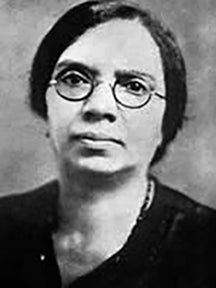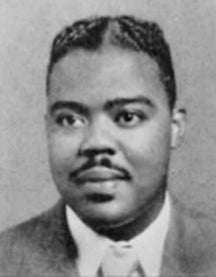Local educator, historian has two historical markers approved
Published 4:45 pm Tuesday, March 26, 2024
|
Getting your Trinity Audio player ready...
|
Two unsung African American heroes in northeastern North Carolina will receive recognition for their efforts in empowering rural Black communities through education and legal counsel.
Marker applications for the late Annie Wealthy Holland and James R. Walker Jr. were officially approved last month by NC Department of Natural and Cultural Resources Secretary Reid Wilson following December’s preliminary approval by the state’s Highway Historical Marker Committee.
Local research historian Rodney D. Pierce, a middle school Social Studies teacher in Northampton County Schools, applied for the markers in October 2023 and recently received notification of their approval.
“I’m grateful to Secretary Wilson and the marker committee for recognizing the value of the contributions of Mrs. Holland and Mr. Walker,” said Pierce.
Holland, a Virginia native, and alumna of Hampton University, became a Jeanes teacher in 1911 in Gates County. Founded in 1907, the Jeanes Fund was a foundation that financed the hiring of primarily Black female teachers who taught rudimentary and vocational education in rural Black communities from the early to mid-20th century.
Holland quickly distinguished herself working as Gates County’s rural school supervisor, overseeing industrial education in 22 schools.
In 1915, she was hired as the state’s chief home demonstration agent for African Americans, and in 1921, when the North Carolina created the Division of Negro Education, she became the state supervisor of Negro elementary schools. The latter role included Jeanes’ teacher oversight and the supervision of the state’s 32 Black schools.
Under Holland’s leadership, the North Carolina Congress of Colored Parents and Teachers was organized in 1927. It was the first Black parent-teacher association in the state. In 1928, the group held its first annual meeting at Shaw University in Raleigh with just under 16,000 members. Holland was elected as the group’s first president, a role she served in until her death in 1934.
A tree was planted and a bench was built at Shaw University in her remembrance. A woman’s residence hall at North Carolina A&T State University in Greensboro was named in her honor as was a former elementary school in Rocky Mount.
Walker, a native of Ahoskie, earned his bachelor’s degree from N.C. Central University in Durham after being honorably discharged from the United States Army following service in World War II. He was the first of two Black graduates from any program at UNC-Chapel Hill, having graduated from its law school in 1952. While there, he led efforts to desegregate the student section at Kenan Stadium and the law school’s social dances.
Walker returned to his native northeastern NC to become a grassroots civil rights attorney, waging voting rights battles across a six-county area (Halifax, Northampton, Warren, Bertie, Hertford, Gates). He was the principal organizer and president of the Eastern Council on Community Affairs, a group that advocated for Black representation in local and state governing bodies and opposed school separation in Warren and Halifax counties. Three bills for segregated school districts in Warrenton, the Littleton-Lake Gaston School District, and the Scotland Neck City School District were all found to be unconstitutional, with the Scotland Neck case (U.S. v. Scotland Neck City Board of Education) going all the way to the U.S. Supreme Court. Walker served as counsel in some capacity in all three lawsuits.
In 1955, Walker unsuccessfully challenged the prohibition of single shot voting for the Halifax County Board of Education in the case Walker v. Moss. That same year, he filed a lawsuit challenging the state’s literacy test in Lassiter v. Northampton County Board of Elections, which was argued before the U.S. Supreme Court. Despite losing, voting rights advocates would later cite Lassiter while defending the Voting Rights Act of 1965, and Walker did get the state’s high court to rule against the administration of the state’s literacy test toward Black citizens when he won in Bazemore v. Bertie County Board of Elections in 1961.
Walker is the first Black member of UNC-Chapel Hill’s Dialectic and Philanthropic Societies, the school’s debating and literacy society, and the oldest student organization on the campus.
He was recognized by the state’s NAACP for its Distinguished Service Award for his efforts in civil rights. In 1961, he was the keynote speaker for the National Lawyers Guild in Detroit, Michigan, and in 1978, was named Lawyer of the Year by the same organization.
“I am ecstatic and grateful that my father’s sacrifice for civil rights, particularly voting rights, for Black and Brown Americans is being recognized,” said Walker’s oldest daughter, Patricia Youmans.
Pierce now has successfully applied for eight historical markers across five counties and two states. He will look to apply for markers for late Northampton county natives Mebane H. Burgwyn, a Rich Square native and award-winning author of children’s books, and Pleasant Hill native Dr. Grady D. Davis Sr., a civil rights activist, in the next application cycle.




